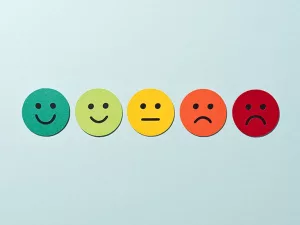Ever caught yourself scrolling through a vacation photo album and thinking, “I should be working right now”? That tight knot in your chest is what we call productivity guilt. It’s that uneasy feeling that you’re not doing enough, even when you’ve already crossed off a few items on your to‑do list.
In the next few minutes I’ll break down why the guilt shows up, how it’s actually a sign of deeper cultural pressures, and give you a toolbox of real‑world steps to finally manage guilt and reclaim the joy of both getting things done and simply being.
What Is Productivity Guilt
Quick definition
Productivity guilt is the nagging shame that bubbles up when you believe you haven’t accomplished enough in a given time frame. It’s not just a fleeting “I could have done more” thought; it’s a persistent emotional loop that tells you you’re somehow failing.
How it differs from normal busy‑feel
Being busy feels like a temporary rush of activity. Productivity guilt feels like a judgment that sticks around long after the task is over. You might finish a project and still hear the inner critic whisper, “What if I could have done it faster or better?” That lingering voice is the hallmark of guilt, not just the ordinary hustle.
The psychology behind it
Two classic ideas help explain this loop. First, the Zeigarnik effect shows our brains cling to unfinished tasks, keeping them active in our memory. Second, impostor syndrome—where we doubt our competence despite evidence of success—feeds the belief that any pause equals weakness.
Common triggers
- Overloaded to‑do lists that never feel “finished.”
- Seeing peers brag about non‑stop hustle on social media.
- Work cultures that equate long hours with loyalty.
- Remote‑work setups that blur the line between “on the clock” and “off the clock.”
Root Causes
Cultural & capitalist pressure
Our society has turned productivity into a moral virtue. As Sarah Bryski‑Hamrick notes, “We’re taught to value people based on output, not on who they are.” Under capitalism, being “busy” often masquerades as being “good.” That narrative makes any downtime feel like personal failure.
Opportunity‑cost trap
Chris Bailey explains that every task carries an hidden cost: the alternative things you could have done instead. When you glance at your inbox and wonder, “What if I spent those minutes on a side project?” that mental accounting fuels guilt, even if the task was necessary.
Self‑worth tied to output
When we start measuring self‑esteem by the number of checkmarks on a list, every unchecked box becomes a personal flaw. A therapist from Resilient Roots writes, “Linking self‑value to productivity can elevate stress hormones, eroding mental health over time.”
Social‑media comparison
Scrolling through curated feeds of entrepreneurs posting 5‑hour workdays creates a distorted baseline. According to a Microsoft study, two‑thirds of workers feel they have too much to do, and the pressure spikes when we compare ourselves to highlight reels.
Mini‑case study: The freelance designer
Jenna, a freelance graphic artist, would open Instagram on Saturday mornings and feel a tug of guilt as other creators posted “productive Sunday” stories. She started staying up late on Sundays to “catch up,” only to feel more exhausted and less creative during the week. Recognizing the comparison trap was the first step to manage guilt and re‑insert genuine rest.
Real Costs
Burnout & mental‑health decline
Chronic guilt spikes cortisol, the stress hormone that meddles with sleep, appetite, and mood. Over time, that stress morphs into burnout—a state where you feel mentally and physically depleted, making even simple tasks feel monumental.
Reduced performance & creativity
Paradoxically, the more you chase constant output, the less creative you become. Research on the benefits of deliberate rest shows that short, guilt‑free breaks actually sharpen focus and improve problem‑solving. In other words, taking a break isn’t lazy; it’s strategic.
Strained relationships & life‑satisfaction
When guilt drives you to work late, you’re stealing time from family meals, friend catch‑ups, and even quiet moments with yourself. Over months, those missed connections erode the sense of belonging that fuels long‑term happiness.
Quick self‑check list
- Do you skip dinner with loved ones to finish emails?
- Do you feel a surge of anxiety when you log off work devices?
- Do you constantly replay “what if I had done more” in your mind?
If you answered “yes” to any of these, you’re likely paying a hidden price for productivity guilt.
Action Toolkit – How to Manage & Overcome Guilt
Re‑frame the self‑talk
Whenever the inner critic pops up, ask yourself, “Am I doing what I can right now?” This simple question, championed by Chris Bailey, shifts the focus from “should I be doing more?” to “what have I actually achieved?” It’s a quick mental reset that tells your brain the guilt loop is over.
Celebrate progress, not just process
Instead of obsessing over unfinished steps, create a daily “win journal.” Write down three things you completed and one thing you’re proud of—no matter how small. Stacey Back swears by this habit; she says it rewires the brain to seek satisfaction from completion rather than perpetual motion.
Sample win‑journal layout
| Task | What I Accomplished | One Thing I’m Proud Of |
|---|---|---|
| Write blog outline | Finished intro & 3 headings | Stayed focused for 45 minutes |
| Morning walk | 30‑minute brisk walk | Started the day energized |
| Client call | Resolved project scope | Kept the conversation positive |
Set realistic, manageable goals
The 80/20 rule helps you spot the tasks that produce the biggest results. Pick one high‑impact item each day and give it a time‑boxed slot (e.g., 90 minutes). Anything left over can slide to tomorrow—no guilt required.
Schedule guilt‑free breaks
Research shows that a 5‑minute “micro‑break” every hour restores focus. Mark those breaks on your calendar as “Relaxation” or “Recharge,” not “Idle.” When the alarm rings, step away, stretch, or watch a calming video. You’ll return with a sharper mind and a lighter conscience.
Accountability & boundary setting
Tell a trusted friend or partner about your “no‑work after 7 p.m.” rule. Ask them to check in if you slip. External accountability makes the boundary feel real, and the shared commitment reduces the temptation to justify extra work.
Mind‑body reset practices
Simple breathing exercises, a quick meditation, or a five‑minute walk outdoors can quiet the guilt chatter. Sarah Bryski‑Hamrick recommends the mantra, “Rest is work for my brain,” repeated during a pause. Over time, that mantra rewires the belief that downtime equals laziness.
Quick Cheat Sheet – One‑Page Printable
Visual summary of the toolkit
Imagine a tiny infographic with three sections: “Re‑frame,” “Celebrate,” and “Rest.” Each shows a single action step—ask the question, log a win, or take a 5‑minute break. Keep it on your fridge or desktop for a daily reminder.
Download the free cheat sheet
Grab the printable PDF here and keep it handy whenever guilt tries to crash your day.
Conclusion
Productivity guilt isn’t a flaw in your character; it’s a cultural echo that many of us hear when we’re caught between ambition and the basic need to rest. By recognizing the root causes, acknowledging the real costs, and applying a simple, compassionate toolkit, you can shift from a cycle of self‑criticism to a rhythm of balanced achievement.
Start small: pick one of the actions above—maybe a win journal tonight, or a 5‑minute walk tomorrow. Notice how the guilt loosens its grip as you give yourself permission to be both productive and human. If you’ve tried any of these strategies, share your experience in the comments. Let’s keep each other accountable and turn the tide on productivity guilt together.

























Leave a Reply
You must be logged in to post a comment.